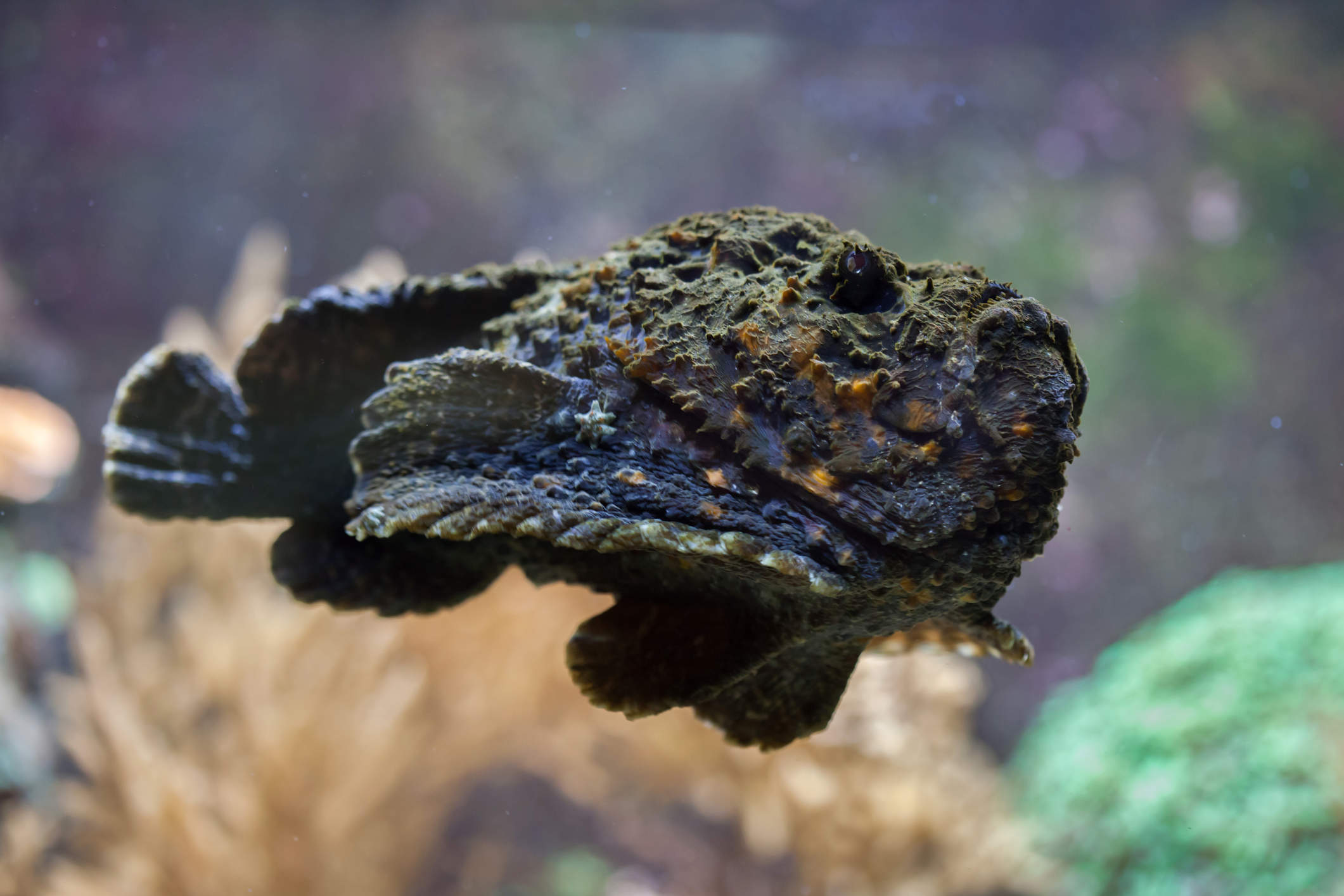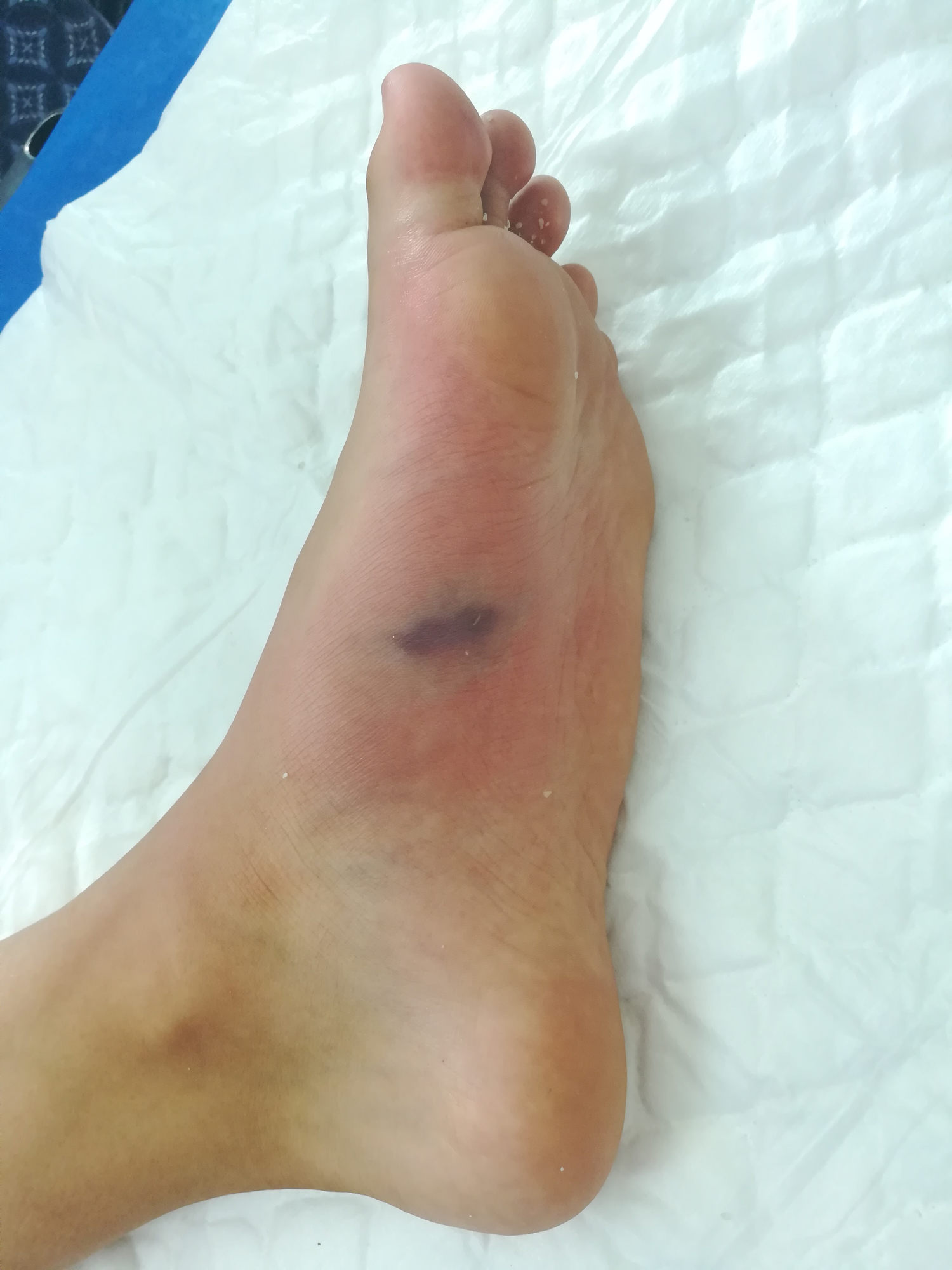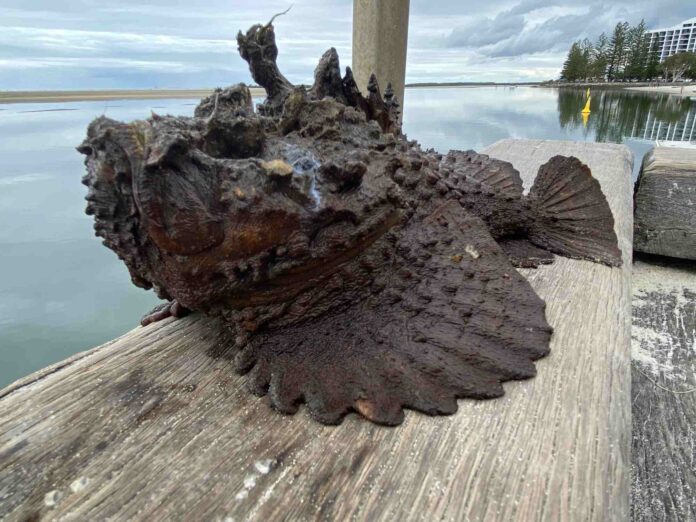Emergency services and marine experts have some words of advice for beachgoers, after a spate of stonefish encounters.
Several people have sighted or been stung by the world’s most venomous fish this summer, while statistics revealed dozens of people required treatment during the past few years.
A fisherman reeled in an impressive specimen at Golden Beach recently, while lifesavers said many people were being caught unawares at Happy Valley.
Ithaca-Caloundra City Life Saving Club honorary secretary Patricia Barry said visitors to the area were ignoring signs at a rocky bay and some were paying a painful price.
“We’re getting a lot of stonefish stings from that area, so it’s not a good place to go,” she said.
Sixty-four people have presented to the Sunshine Coast Hospital and Health Service for stonefish stings during the past three years, at a rate of one every 17 days.
The director of the service’s emergency department, Dr Ben Close, said beachgoers should promptly call for help if they are stung.
“In the event of a sting, phone triple zero (000) and immediately soak the affected area in hot but not scalding water, ideally 45 degrees Celsius, to relieve the pain until you receive medical attention,” he said.

A marine ecologist from the University of the Sunshine Coast, Dr Ben Gilby, said stonefish were common in the region.
“There have been anecdotal reports of some stings recently in Caloundra,” he said.
“Stonefish can occur anywhere where there is rocky, reefy or rubbly substrate in marine environments.
“They can also occur amongst seaweeds.
“It’s safest to assume that the fish can be anywhere around rocky or rubble bottoms which is underneath the water.
“Stonefish are ambush predators and look like rocks, so people are unlikely to see them.”
Stonefish can be up to 50cm in size but are commonly 20cm to 30cm.
“As ambush predators, the fish’s strategy for catching food is to sit quietly, camouflage against their background and ambush any fish that swim past,” Dr Gilby said. “They are not very good swimmers.

“Stonefish have venomous spines along their back/dorsal fish as their only form of defence.
“Stonefish have 13 spines along their dorsal fish which can envenomate anyone or anything that comes into contact with them.”
Dr Gilby said a sting could be fatal.
“Stonefish are not dangerous insofar as they will not go out of their way to attack people,” he said.
“However, they are highly venomous, and severe envenomation can result in heart failure and death in the worst instances.”
The Queensland Museum states that the pain is immediate, excruciating and may last for many days.
It said people should wear closed-in shoes in areas where the stonefish might be living or avoid the area altogether.





